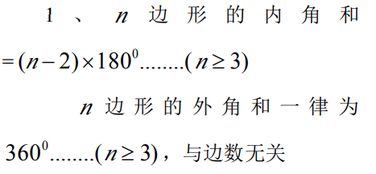Master 'Two Weeks' in English: The Phrase 'Amp Quot Two Weeks Amp Quot
Two Weeks": A Multifaceted Exploration in English

The phrase "两周" in English translates directly to "two weeks." While this translation might seem straightforward, the concept of two weeks encompasses a variety of meanings, usages, and cultural connotations across different contexts. From a temporal perspective, two weeks signifies a specific duration of time. However, it also carries implications in various aspects of life, including work, education, personal growth, travel, and even mental health. This article delves into the multifaceted nature of "two weeks," examining its significance and applications in different realms.
Temporal Dimension: The Basic Concept
At its core, "two weeks" represents a defined period of 14 days. This time frame is frequently used in scheduling, planning, and deadlines. Whether it's setting up a meeting two weeks in advance or preparing for an upcoming event, the duration serves as a benchmark for organization and time management. In the corporate world, two weeks might be the notice period for resignation or a standard duration for project milestones. It allows individuals and organizations to allocate time effectively, ensuring tasks are completed within a specified timeframe.
Work and Professional Development
In the professional sphere, "two weeks" often signifies a crucial period for onboarding new employees, project delivery, and performance evaluation. Many companies incorporate a two-week orientation program for new hires to acclimate them to the company culture, policies, and procedures. This period helps new employees understand their roles and responsibilities, fostering a smoother transition into their work environment.
Moreover, two weeks is a common duration for short-term projects or tasks within larger projects. It allows teams to break down larger objectives into manageable chunks, enhancing productivity and focus. Project managers often use two-week sprints in agile methodologies to iterate and refine work, ensuring continuous progress and adaptability.
Performance reviews might also adhere to a bi-weekly or monthly schedule, with two weeks serving as a mini-cycle within this broader evaluation period. Employees can track their progress and adjust their strategies accordingly, aiming for continuous improvement.
Education and Academic Calendar
In educational settings, "two weeks" can mark significant points in the academic calendar. Semesters are typically divided into smaller periods, with two weeks representing a manageable chunk for assessments, exams, or specific learning modules. Teachers might design two-week units of study, focusing on a particular topic or skill set. This duration allows students to immerse themselves in the material, enabling deeper understanding and mastery.
Furthermore, two weeks serves as a crucial period for exam preparation. Students often dedicate this timeframe to revise content, practice problems, and simulate test conditions. It’s a focused burst of preparation that can significantly boost performance, highlighting the importance of time management in academic success.
Personal Growth and Habits
Personal development enthusiasts often emphasize the power of two-week challenges or habits. This duration is long enough to form new routines or break unwanted behaviors, yet short enough to maintain momentum and stay motivated. Whether it’s adopting a new exercise regimen, practicing mindfulness meditation, or improving time management skills, two weeks can serve as a springboard for lasting change.
The two-week period encourages individuals to commit to small, achievable goals. It minimizes the overwhelming nature of long-term commitments, making personal growth more accessible and manageable. By celebrating small victories and building upon them, individuals can sustain momentum, gradually incorporating healthier habits into their daily lives.
Travel and Exploration
For travelers, "two weeks" is a popular duration for short-term adventures. It balances the excitement of exploration with the practicality of time management. Two weeks is sufficient to visit a destination in-depth, allowing travelers to immerse themselves in local culture, try new foods, and create lasting memories.
Moreover, this timeframe allows for a cost-effective travel experience. Many budget-conscious travelers plan their trips around two-week vacations, balancing sightseeing with downtime. It prevents burnout and ensures a well-rounded travel experience, striking a balance between exploration and relaxation.
Mental Health and Well-being
In the realm of mental health, "two weeks" can signify a pivotal period for self-care and wellness. Mental health professionals often recommend taking short breaks or retreats to recharge and rejuvenate. Two weeks serves as an ideal duration for a mental health sabbatical, allowing individuals to step away from daily stressors, focus on self-reflection, and practice mindfulness.
Furthermore, this timeframe can be crucial for addressing mental health issues. Some therapeutic interventions, such as intensive outpatient programs (IOPs), operate on a two-week basis. They provide structured support and guidance, helping individuals navigate challenges and develop coping strategies.
Cultural Connotations and Variations
The significance of "two weeks" can vary across cultures. In some societies, it might represent a significant portion of paid leave or vacation time, emphasizing the importance of work-life balance. In others, two weeks might be seen as a blink in the grand scheme of life, with a stronger emphasis on long-term planning and commitments.
Moreover, regional differences can influence how two weeks is perceived and utilized. For instance, in countries with generous parental leave policies, two weeks might be a standard increment for parental bonding time. In contrast, in regions with limited vacation days, two weeks might be meticulously planned and savored.
Conclusion
In summary, "two weeks" is a versatile concept with diverse applications and implications. From time management and professional development to personal growth, travel, and mental health, this duration plays a crucial role in various aspects of life. It underscores the importance of balancing short-term and long-term goals, emphasizing the value of focused effort within manageable timeframes.
By recognizing and harnessing the power of two weeks, individuals can enhance productivity, foster personal growth, and create meaningful experiences. Whether it’s advancing in one’s career, exploring new destinations, or prioritizing mental well-being, the two-week period serves as a potent tool for achieving personal and professional aspirations.
Ultimately, the significance of "two weeks" lies in its adaptability and potential. It encourages us to think strategically about time, leveraging its finite nature to create lasting impact and fulfillment. By embracing the versatility of two weeks, we can navigate life’s challenges and opportunities with greater intention and purpose.
- 上一篇: 中兴V965W详细评测报告
- 下一篇: 豪杰超级解霸播放软件怎么样,有哪些特点?
-
 How do you say 'quot 无所谓 quot' in English?资讯攻略01-16
How do you say 'quot 无所谓 quot' in English?资讯攻略01-16 -
 公式中'amp quot'的含义及作用是什么资讯攻略02-20
公式中'amp quot'的含义及作用是什么资讯攻略02-20 -
 Discovering the English Phrase for '自我介绍资讯攻略01-19
Discovering the English Phrase for '自我介绍资讯攻略01-19 -
 揭秘:西方教堂牧师经典英文证婚词全解析资讯攻略03-02
揭秘:西方教堂牧师经典英文证婚词全解析资讯攻略03-02 -
 How Do You Pronounce 'Abbily' in English?资讯攻略11-12
How Do You Pronounce 'Abbily' in English?资讯攻略11-12 -
 What is the Full Form of SML in English?资讯攻略10-30
What is the Full Form of SML in English?资讯攻略10-30












